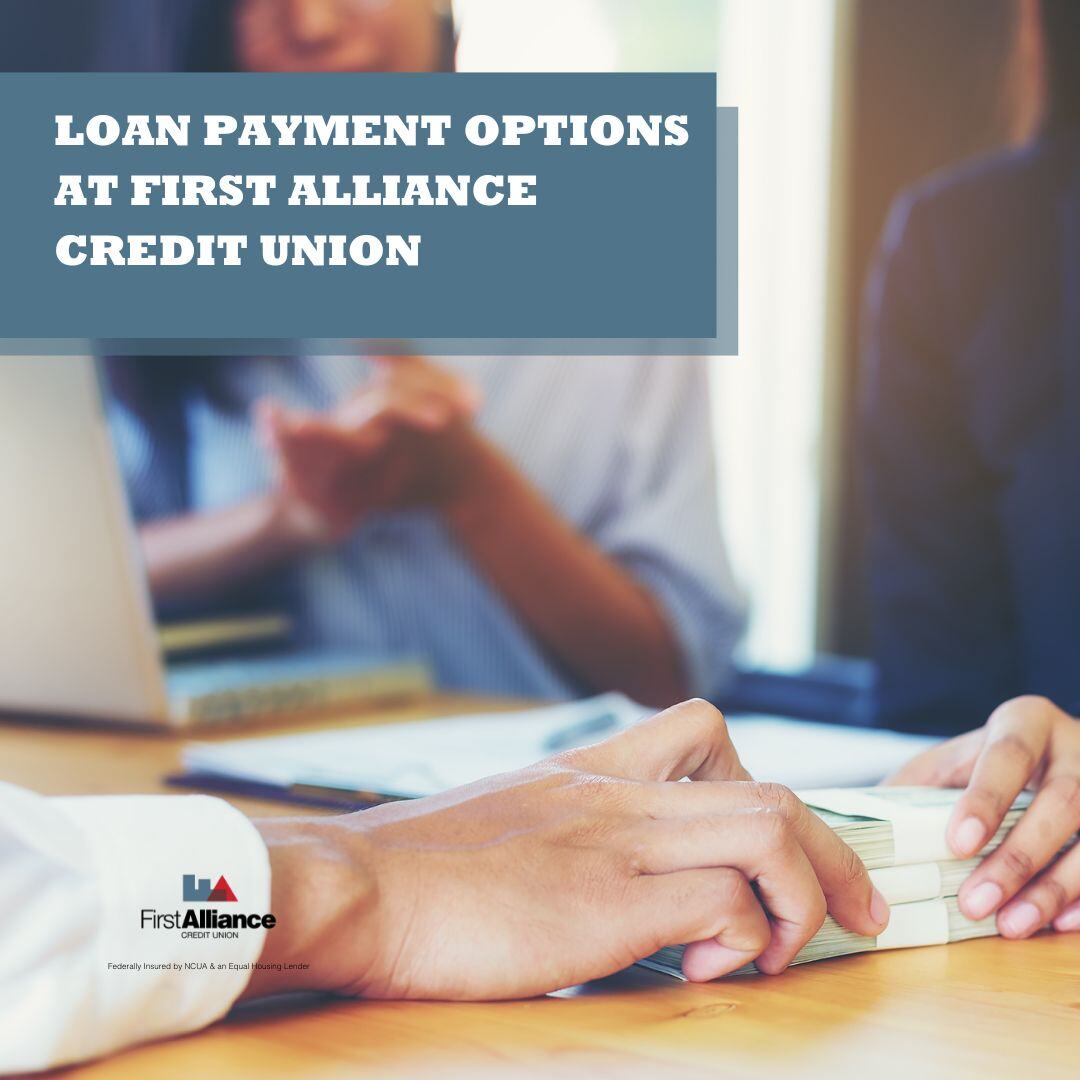Loan Payment Options at First Alliance Credit Union
We know everyone manages their money a little differently. Some people prefer a more self-service style with online banking, while others like coming...
6 min read
 Jenna Taubel
:
Nov 20, 2025 5:45:00 AM
Jenna Taubel
:
Nov 20, 2025 5:45:00 AM

If your credit score has taken a few hits, you’re not alone. Maybe you missed a few payments, maxed out a credit card, or had a loan that got away from you. Whatever the reason, a low score can make life a bit harder. Suddenly, getting approved for a car loan, an apartment, or even a new cell phone plan feels like climbing a hill in roller skates.
Here’s the good news: You can rebuild your credit.
One of the most effective ways to do it? Personal loans for bad credit. When used smartly, they can help you repair your credit, simplify your bills, and start fresh with better habits. Let’s break it all down in a way that’s simple, clear, and even a little fun.
Think of your credit score like a report card for your money life. It shows how well you handle borrowing and paying back what you owe.
Having bad credit doesn’t make you a bad person, it just means your past money choices (or some unexpected life stuff) didn’t go perfectly. Late payments, high balances, short payment history, or collections can drag your score down, but none of that has to define your future.
A personal loan is money you borrow from a lender and pay back in set amounts over time, kind of like paying off a big purchase in monthly chunks. You can use it for almost anything:
Unlike credit cards, personal loans have fixed payments and set timelines, so you know exactly when you’ll be debt-free. This helps you break free from the endless loop of running up a credit card balance, paying it off, and then repeating the cycle all over again.
You might be thinking, “Wait, I already have debt. How can taking another loan help?” Great question. Here’s why personal loans can actually improve your situation:

When you’re working with bad credit, not all loan types are created equal, they each come with their own pros, cons, and requirements. It’s important to understand what fits your situation best before you make a decision. Here’s a quick cheat sheet to highlight the main options you’ll likely encounter and what makes each one different:
These loans don’t require you to put up any collateral, meaning you don’t need to offer something like your car or savings as security. Instead, your approval mostly depends on your credit history and current income. If you can show a steady income and a consistent payment track record, you’ve got a good shot at qualifying.
These loans require you to put something of value, such as your car, a certificate of deposit, or funds from your savings account, up as collateral. This means the lender has a safety net: if you aren’t able to make your payments, they have the right to claim that asset to recover their loss. Because this type of loan comes with less risk to the lender, borrowers are often rewarded with lower interest rates and may even find it slightly easier to qualify, even with less-than-perfect credit. This can make secured loans a helpful option if you’re looking to rebuild your credit and pay down debt, while keep borrowing costs as low as possible.
Credit unions, like First Alliance Credit Union, often look beyond just your score. They take time to understand your unique situation, listen to your story, and consider factors that traditional lenders might overlook, like your current financial challenges, your progress in rebuilding, or changes in your income. Because their focus is on people, not just numbers, they’re more likely to offer personal guidance and tailor loan terms to fit your needs. This personal approach can mean more flexible repayment options, lower starting amounts, or even second-chance programs that help you get back on track, making it easier to qualify even if your credit isn’t perfect.
Let’s talk about your bad credit personal loan application, this is your chance to see what kinds of loan products are available, what interest rates you might qualify for, and how much you could potentially borrow. During this step, you’ll typically answer a few questions about your income, employment, and credit history so lenders can match you with the best options for your situation.
It’s an important moment to get a clear picture of where you stand and understand what’s possible, without impacting your credit score at this stage. Taking the time to explore your choices now helps you feel confident moving forward, knowing you’re setting yourself up for success with the right loan for your needs.
Get the expert tips you need to gain control of your debt today!
Still have questions about how personal loans can help boost your credit score? Here’s a handy Q&A to guide you.
Absolutely. As a credit union, First Alliance takes time to understand your entire financial situation, not just your credit score. Instead of letting one number define you, we look at factors like your income, your financial progress, and your unique challenges and goals. Our goal is to see you as a whole person, which means we’re often able to offer personalized guidance and flexible solutions, especially when your credit score needs a boost.
Focus on paying off high-interest credit cards or catching up on past-due bills first, these steps make the biggest difference for your credit score, and the results can come quickly. Eliminating high-interest debt frees up more of your income each month, reducing financial stress, and paying off past-due balances shows lenders that you’re serious about getting back on track. By tackling these areas, you’re not only boosting your score faster, but also laying a stronger foundation for healthier finances going forward.
Absolutely. Having just one manageable monthly payment is often much easier than juggling five separate bills, each with different due dates and interest rates. When you consolidate your debts with a personal loan, you combine multiple payments into one, making it simpler to stay organized and on track. This can help ease stress and reduce the risk of missing a payment—plus, you may even save money if your new loan comes with a lower interest rate than your previous debts. Overall, it’s a practical step toward regaining control over your finances.
If your credit score has improved, refinancing can absolutely help you secure a lower rate, which could save you money over the life of your loan.
Let’s say you take out a $3,000 personal loan to pay off two credit cards. Before, each card was maxed out, which hurt your credit utilization ratio (that’s how much of your available credit you’re actually using versus your total credit limit). High utilization can drag your credit score down because it signals to lenders that you might be overextended.
As soon as you use your loan to pay off those cards, your credit card balances drop dramatically, immediately lowering your utilization ratio. This change alone can have a quick, positive effect on your credit score. But the benefits don’t stop there.
Now, instead of wrestling with revolving high-interest credit card debt, you have a single, predictable loan payment. As you consistently make on-time payments each month, you’re building a solid track record of responsible borrowing, which strengthens your payment history, one of the biggest factors in your credit score.
This approach delivers a powerful double win: you create space on your credit cards while also demonstrating responsible credit management with your new loan. Together, these moves can put you on the fast track to a better credit score, sometimes faster than you might expect.
Even while using a personal loan, you can keep improving your score by:
The more positive financial habits you stack, the stronger your credit becomes.
Rebuilding your credit takes patience, but you don’t have to do it alone. At First Alliance Credit Union, we believe everyone deserves a fresh start. Whether you’re consolidating debt, paying off bills, or just need a little breathing room, we’ll help you find the right personal loan for your situation. Apply for a personal loan with First Alliance Credit Union and rebuild your credit with confidence.

We know everyone manages their money a little differently. Some people prefer a more self-service style with online banking, while others like coming...

If you’re considering switching to a new financial institution, you might wonder how does switching banks or credit unions affect your credit score?...

When the time comes to start looking for a new or used vehicle, you will also likely be looking for a auto loan, and if you're getting a vehicle loan...